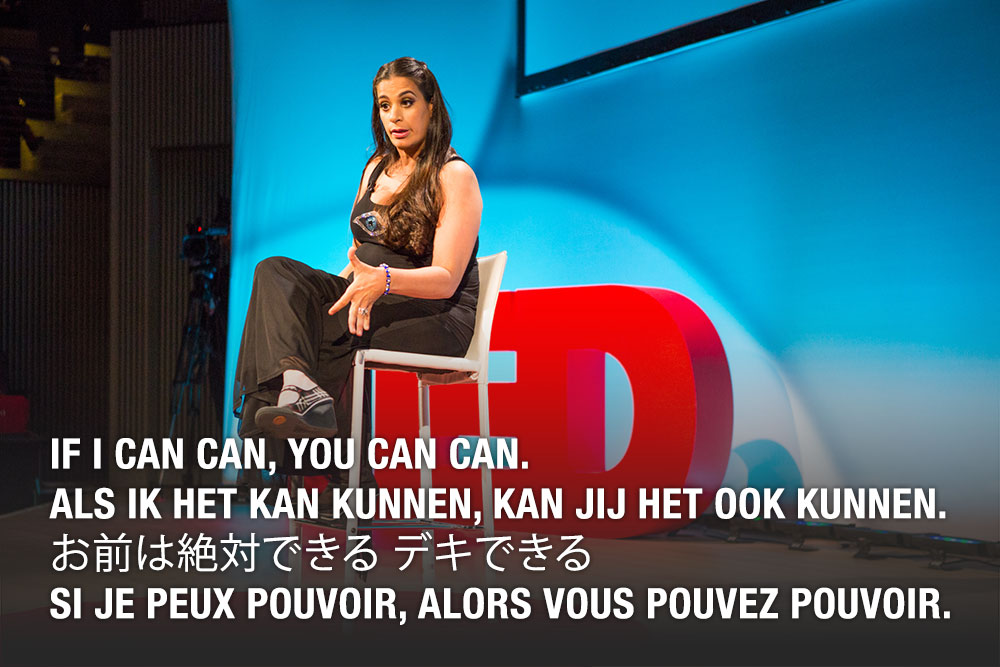
What’s funny in one language isn’t necessarily funny in another. Maysoon Zayid’s “I got 99 problems … palsy is just one” presented many challenges for TED translators bringing the hilarious talk into their language. As she tells stories from her life as a Palestinian-American comedian with cerebral palsy, Zayid cracks with wordplay. For translators, it’s one thing to convey meaning, but how do you let non-English speaking audiences in on the joke? “If you have to explain the joke, it’s no longer funny,” says Greek translator Dimitra Papageorgiou. But if you do a good job, says Meric Aydonat, who translated the talk into Turkish, “it looks so natural that your translation becomes funny in itself.”
Valérie Boor subtitled the talk in Dutch. “It’s always difficult to make a translation funny, since the spoken word has factors like timing and intonation that contribute to the joke,” she says. “For Maysoon’s talk, the translators had a discussion [on Facebook], since not everyone was on the same page as to why it was funny!”
For Boor, the key was to keep things simple. “What I think is difficult in translating humor is that you always want to translate all the aspects in which a joke is funny,” she says. “Quite often, you’ll have to choose and let one or more aspects go untranslated.”
A line that stumped her, as well as French translator Elise Lecamp, came from some relatively simple wordplay that Zayid weaves through the talk, when she says: “My parents didn’t believe in ‘can’t.’ My father’s mantra was, ‘You can do it, yes you can can.’” She brings this back in her final line: “If I can can, you can can.”
“In some languages, this would sound the same—for instance, in German it would be ‘Ich kann kann,’” says Lecamp. “But in French, ‘Je peux peux’ doesn’t really work.”
The problem with translating verbal humor is that a literal translation often doesn’t make sense. But for Czech translators Jan Kadlec and Pavel Dušek, the surprising solution to translating the “can can” line turned out to be using a different dance-based pun in their own language. “Pavel came up with an ingenious idea,” Kadlec says. “There’s a dance—czardas (čardáš in Czech), and its second part (‘dáš’) sounds like ‘you can’ in Czech. So the translation in Czech is ‘Ty to (čar)dáš.’ Both meaning and humour preserved.”
Mari Arimitsu, who reviewed the talk in Japanese, was impressed with how translator Yuko Yoshida handled this line. ”Yuko did an amazing job creating a fusion of Hiragana (the basic Japanese phonetic script) and Katakana (how you write foreign loan words),” she wrote us. “By representing the same word exactly the same in both in Katakana and Hiragana, it made the line equally funny as the original.”
Maysoon Zayid, for one, appreciated the thought that went into each and every translation of her talk. “Hands down my favorite part of being a speaker at TEDWomen was seeing my talk translated. Every time a new language was added, I would post it on Facebook because it made me so happy,” she says. “As a bilingual comic, I know how hard it is to translate comedy and I love everything these volunteers did, especially in tackling ‘can can.’ I’m thrilled that so many people were willing to take on this challenge. Together we proved that comedy really is a universal language.”
[ted id=1898]
>
Comments (16)